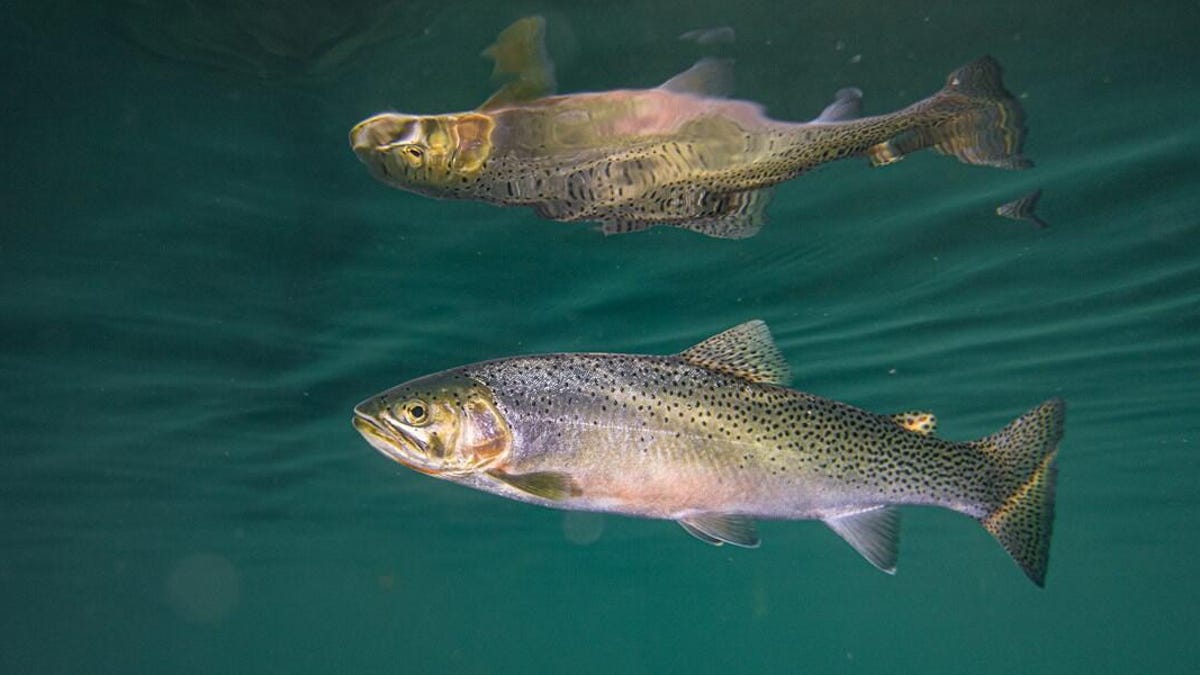Fish are getting addicted to meth and it's messing with their brains
Methamphetamines in our water supply could be getting fish hooked, new research shows.

A trout probably not suffering from withdrawal. Yet.
You probably know that household chemicals, medicines and prescription drugs can work their way through wastewater treatment facilities to contaminate rivers and streams, but the problem isn't limited to legal substances. New research shows illicit methamphetamines can wind up in the brains of fish, passing one of human society's ills further down the food chain.
"Drug addiction in wild fish could represent another example of unexpected pressure on species living in urban environments," said Pavel Horký from the Czech University of Life Sciences in Prague, in a statement.
The notion of fish struggling with the phases of addiction, including withdrawal and the drive to get that next fix, might seem bizarre or even funny, but it isn't far from the truth, according to scientists.
Horký led a team that studied the effects of meth in waterways on brown trout and published the findings in the latest issue of the Journal of Experimental Biology.
The researchers isolated some trout in a tank of water laced with the same level of meth that's been found in some freshwater rivers. After eight weeks, the fish were transferred to a new tank and offered a choice between fresh water and water with meth. The team found that the trout had become addicted after two months in the meth water and would reliably seek out the drug after being removed from it and would begin to feel the effects of withdrawal.
The addicted fish also showed lower activity levels than trout that were unexposed to the drug, with traces of meth remaining present in their brains for up to 10 days after being removed from the contaminated water.
The researchers concluded that even low levels of drugs that make it to rivers and streams can affect wildlife.
Horký cautions that the lab-based results don't serve as proof that rivers are swarming with addicted fish.
"Whether illicit drugs alter fish behavior at levels increasingly observed in surface water bodies was unclear."
But he is worried that addiction to drugs in the water could change the natural behavior of fish, possibly causing them to look for a fix by gathering near places where contaminated water is discharged.
"Such unnatural attraction to one area together with documented changes in behavior could result in unexpected ecological consequences influencing whole ecosystems," the study concludes.
If you think carp swarming near the edge of a feeding pond can be unsettling, addicted trout gathering near your local wastewater discharge is a new and sad kind of apocalyptic vision.
The researchers aim to conduct further research in the field to get a better idea of just how far meth addiction has spread underwater.

